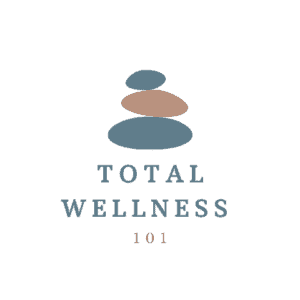One of the first things someone does when trying to lose weight is to search how and what they should eat. Their searches generally lead them to many different opinions on the internet and diets which appear to have worked and helped people achieve amazing changes quickly. This can be confusing especially for someone who is just starting out. For those just starting their fitness journey I would recommend this article as well. I decided to do some research and give a concise review of some of the more popular diets out there, who may benefit more from them, as well as my personal take on them.
The Ketogenic Diet
The first diet I would like to discuss is the ketogenic or “keto” diet. The ketogenic diet is essentially a low-carbohydrate, high-fat diet with the goal of putting your body into a state called ketosis. Ketosis occurs when your body does not have enough carbohydrates for energy so it burns fat which produces ketones for fuel. Putting your body into ketosis on occasion has been found to be mostly beneficial as it helps with weight loss and has been used as well for those who suffer from epilepsy. When on this diet, it is typical to eat little to no bread and focus more on meats and dairy. Some commonly consumed foods on this diet are bacon, avocados, olive oil, eggs, cheese, and seeds just to name a few.
Pros:
- Typically you will see weight loss results quickly
- You usually eat more natural foods and animal products.
- Your protein intake will generally increase as well with this diet which benefits fat-loss.
- You feel full since you are eating mostly fat and protein and the food tastes good.
- You don’t have to avoid fat.
Cons:
- It is difficult to sustain because it is restrictive
- The lack of carbs can reduce energy in your workout and hinder muscle hypertrophy (Vargas et al., 2018).
- Foods labeled for keto or low carb are generally more expensive.
- Requires a significant shift in diet.
- Once you plateau, you aren’t really able to reduce your carbs any more.
- High saturated fat intake and cholesterol could increase chances of cardiovascular issues (Levine et al., 2014).
Overall, I see the keto diet as more of a short-term diet to achieve short-term fat-loss goals. This could be useful for someone preparing for a show or vacation but it is hard to sustain it for a long period of time. This may be a good diet for a weightlifter trying to lose fat and not lose too much muscle in the process as well.
Intermittent Fasting
Intermittent fasting is another fad gaining more and more popularity due to it’s fat loss and health benefits. This method involves cycling through periods of fasting and eating. There is not much guidance on specific foods to eat or not eat during the eating period which makes this appealing to many. There are a few different fasting intervals, though a popular one is the 16:8 method which involves fasting for 16 hours and eating for 8 hours.
This diet is based on the premise that human beings have evolved to not need a constant supply of food and that it is healthy to have some scarcity at times. It has only been in the last 100 years or so that food has become so plentiful to the majority of people and this has been a contributing factor to the high numbers of obesity in developed countries. Overeating habits significantly reduce life spans through conditions such as diabetes, heart disease, high cholesterol, cancers, and even dementia (Sharma, Kaur, Singh, & Kaur, 2019). With this in mind, the reasoning behind it is understandable. Now let’s go over some pros and cons that I found.
Pros:
- Reduce weight effectively in obese individuals (Harris et al., 2018).
- It appears to benefit the brain in certain ways. It can increase stress chaperones, growth factors, and antioxidant enzymes which can improve inflammation and the production of nervous tissue (Sharma, Kaur, Singh, & Kaur, 2019).
- Intermittent fasting is more sustainable than most diets, not requiring the restriction of foods you enjoy.
- Fasting increases ketone bodies thus promoting autophagy which is associated with longer life spans (Sharma, Kaur, Singh, & Kaur, 2019).
- It can help those with a tendency to overeat.
- Zero cost and you can start right away.
Cons:
- Athletic performance can be negatively affected (Cherif, Roelands, Meeusen, & Chamari, 2016).
- It generally can’t be done if you have diabetes or blood sugar problems.
- You’ll feel hungry.
- Coping and decision-making strategies can be negatively affected
- Impacts cytokine expression in the brain and may cause memory deficits (Cherif, Roelands, Meeusen, & Chamari, 2016)
- Could cause some food anxiety if you stress about being able to eat enough before your fasting phase. (this happened to me)
I like intermittent fasting mostly due to it being more sustainable and less difficult to implement than most diets. It is simple to understand and free to do. This is great for someone on a budget that doesn’t want to think too hard about what to eat and not eat. I’ve personally known many people who like it and have had success with it so I’d recommend giving it a try if you haven’t already.
The Vegan Diet
An increasingly popular diet which also has a moral element to it as well is the vegan diet. Vegans do not consume meat or animal products. Don’t confuse this with a vegetarian diet which only restricts meat, but allows animal products such as eggs and dairy. The vegan diet differs from most diets in that it is more of a lifestyle than a temporary fat-loss diet. Some choose it due to intolerance to certain foods, to not take part in animal cruelty, or both. Some do it for the environment. Others do it just because they believe it to be healthier for them. There are many reasons why someone would choose to go vegan but let’s explore some of the pros and cons of the diet itself.
Pros:
- Vegan diets are generally higher in some nutrients such as fiber, antioxidants, and vitamins A, C, and E.
- The diet is typically lower in calories because the foods are not very calorie dense which lends well to weight loss. Vegans are generally thinner than non-vegans.
- Seems to be healthy for the kidneys and helps maintain healthy blood sugar levels which could prevent or manage type 2 diabetes.
- Lower risk of certain cancers
- Heart health will generally improve because you will consume less saturated fat and cholesterol.
Cons:
- If not planned correctly, it is easy to become deficient in certain nutrients such as essential omega-3 fatty acids, amino acids, vitamin B12, zinc, vitamin D, iodine, and calcium.
- It is very restrictive and you may not want to give up meat and animal products.
- May need to supplement or plan well to get all the necessary vitamins and minerals.
- Harder to consume complete proteins which could hinder muscle growth for weight lifters.
- Higher risk for anemia and depression due to nutrient deficiencies.
- Makes buying food or going out to eat more complicated because you have to find vegan options.
I believe that we could all benefit from more veggies and healthier grains in our diet. However, I am wary of any diet that is very restrictive like this one. A vegan diet will require a major lifestyle switch and proper planning to ensure that you don’t become deficient in certain key nutrients. It seems to me that it would be hard to implement if you did not have a moral reason to motivate you.
It can be healthy and beneficial if done correctly but in my opinion, the pros don’t really outweigh the cons. I admit I do not adhere to the moral beliefs behind veganism and it is fine if you do. However, looking at it from a purely health-benefit standpoint, you could obtain similar benefits just from increasing your vegetable and whole grain content in your diet without having to eliminate animal products and lose other essential nutrients. Many of the cons of a vegan diet could be eliminated by following a vegetarian diet instead so you still have a high vegetable intake but get the health benefits of dairy and eggs.
Conclusion
After all that has been said about these diets, my final recommendation would be to find what works well for you. Nutrition is not a perfect science and one diet may work better for one person than another. However, for those seeking a real and lasting change, you should always seek a healthy lifestyle over a diet. Diets imply restriction and short-term, while a healthy lifestyle implies balance and long-term benefits. That should always be the goal for those seeking total wellness in their lives.
References
Cherif, A., Roelands, B., Meeusen, R., & Chamari, K. (2016). Effects of intermittent fasting, caloric restriction, and ramadan intermittent fasting on cognitive performance at rest and during exercise in adults. Sports Medicine, 46(1), 35-47. Retrieved from https://www.lib.byu.edu/cgi-bin/remoteauth.pl?url=http://search.ebscohost.com/login.aspx?direct=true&db=psyh&AN=2016-00060-005&site=ehost-live&scope=site
Harris, L., Hamilton, S., Azevedo, L. B., Olajide, J., De Brún, C., Waller, G., . . . Ells, L. (2018). Intermittent fasting interventions for treatment of overweight and obesity in adults: A systematic review and meta-analysis. JBI Database of Systematic Reviews and Implementation Reports, 16(2), 507-547. doi:10.11124/JBISRIR-2016-003248
Levine, M. E., Suarez, J. A., Brandhorst, S., Balasubramanian, P., Cheng, C.-W., Madia, F., … Longo, V. D. (2014). Low protein Intake is associated with a major reduction in IGF-1, cancer, and overall mortality in the 65 and younger but not older population. Cell Metabolism, 19(3), 407–417. doi: 10.1016/j.cmet.2014.02.006
Sharma, A., Kaur, T., Singh, H., & Kaur, G. (2019). Intermittent fasting—Dietary restriction as a biological hormetin for health benefits. In S. I. S. Rattan, & M. Kyriazis (Eds.), (pp. 99-104). San Diego, CA: Elsevier Academic Press. doi:10.1016/B978-0-12-814253-0.00008-5 Retrieved from https://www.lib.byu.edu/cgi-bin/remoteauth.pl?url=http://search.ebscohost.com/login.aspx?direct=true&db=psyh&AN=2018-25165-008&site=ehost-live&scope=site
Vargas, S., Romance, R., Petro, J. L., Bonilla, D. A., Galancho, I., Espinar, S., … Benítez-Porres, J. (2018). Efficacy of ketogenic diet on body composition during resistance training in trained men: a randomized controlled trial. Journal of the International Society of Sports Nutrition, 15(1). doi: 10.1186/s12970-018-0236-9
Recent Posts
In the pursuit of professional success, the modern working professional often finds solace in a cup of coffee or energy drink. Caffeine, the world's most widely consumed psychoactive substance, has...
Strategies for Sales Professionals to Reduce Back Pain and Injuries
In the fast-paced world of sales, professionals often find themselves navigating through long hours, client meetings, and constant travel. Amidst the pursuit of closing deals and meeting targets, the...

